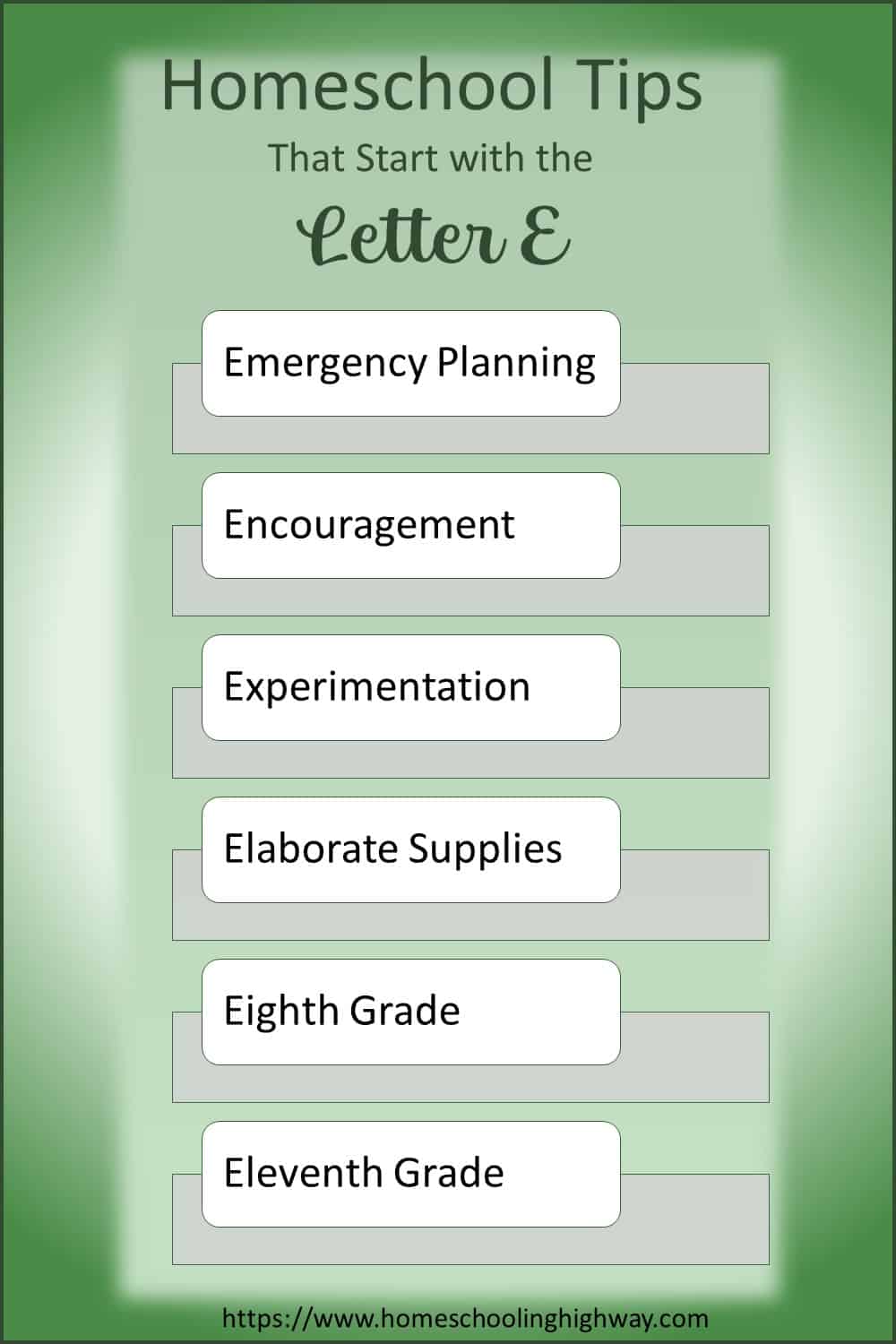
Hi. Welcome back to our Homeschooling Tips from A to Z. This week we are on the letter E.
This post may contain affiliate links. You will not pay more, but I may receive a small commission which I will use to put gas in my truck’s VERY empty gas tank. Thank You!
Homeschooling Tip #1: Emergency Planning
Praise the Lord, we have never had a life threatening emergency to deal with. But, it’s always in the back of my mind to try to be prepared if anything should happen.
Paperwork
Of course, as the parent in the home, you have important paperwork that shouldn’t be lost or damaged; when homeschooling you may have important paperwork also that should not be lost.
This may include any paperwork or copies of school work that your state may need. It could be art pictures, creative writing assignments, or research papers that you want to save for your child to look back on, in years to come.
I know we discussed backing-up our school files on the computer in our “B” post, but it is worth mentioning again. Just this week my daughter’s computer won’t load windows. She’s been very good about printing out her writing assignments as she gets them completed. I also purchase the Microsoft 365 for the family, and this comes with the cloud storage. Praise the Lord, things are backed up.
You just never know.
Personal Information
Have you ever met a middle school age child that did not know their address? I have, and it’s sad.
In case of an emergency, they should know their:
1. Full name
2. Home address
3. Parent’s names
4. Home phone number
5. Parent’s cell phone numbers
Even if this information is written down, and the child knows where to find it, that’s better than nothing at all.
Practice
Nobody likes to think about bad things happening, but you do want your children to know what to do if something horrible does occur.
Teach them how to call 9-1-1. Posted around my phone is our address. Sometimes in an emergency you may forget. It’s then easy to read from the card. My kids and I practiced with toy phones. I was the 9-1-1 operator, and they practiced calling in different situations.
Fire drills are important. Does your family have one place to meet up at, in case of a house fire? Our meeting place is at the next door neighbor’s dog pen. It is easily visible from our home, the dogs know my children, and I feel they would be safe there with a lot of strangers milling around.
We also have a whistle hanging at each upstairs bedroom window. I had to teach my kids that they weren’t allowed to blow the whistle unless there was an emergency; disobeying would mean punishment. The whistle as a great tool to use to get people’s attention, especially if you don’t have the voice or strength to yell loudly.
Teach your kids also, what to do in an earthquake. We had a small earthquake one time. It didn’t last long, and we didn’t even have the chance to move. But after it was over, we brainstormed the best places to go if another, bigger earthquake happened.
Tornadoes, Thunderstorms, Hurricanes. These kinds of storms scare me to death. Our kids know that the basement is the safest in severe weather. We’ve had plenty of practice grabbing the pets, purses, keys, and shoes and hanging out in the basement. Praise God, we’ve never had a confirmed tornado at our home.
Carbon Monoxide Poisoning. As your kids get older, do they know not to start the car in a closed garage? Our smoke detectors speak to us and let us know if any carbon monoxide is detected. Do your kids know what to do?
What about any other type of gas leak? Do they know how to turn the gas off to the home?
How about flooding? It doesn’t even have to be a major community flood. We had flooding in our basement once, just from the well pump breaking. We had to turn off the power in the house, to keep the pump from continually running. Do they know how to clean up a lot of water?
Public shootings. Emergency situations can, of course, happen anywhere. I wrote a post on how, and what to teach to your kids if they are in a situation with a active-shooter-incident. You can see that post here. Active Shooter Situation: Teach Your Kids What to Do
www.ready.gov/kids has a ton of resources and tips on how to teach, train, and plan for emergency preparedness. I’d encourage you to take a look.
First Aid and CPR
Do your older children babysit the younger ones? Do they know what to do if a little one would choke?
Getting certified for CPR is easy to do, and could save a life of a loved one.
Another form of emergency planning that we need to do with our kids, is dealing with an active shooter situation.
I know, this is horrible to think about, but it is so important. To read my post just click on: Teach Your Child What to Do: Active Shooter Situation
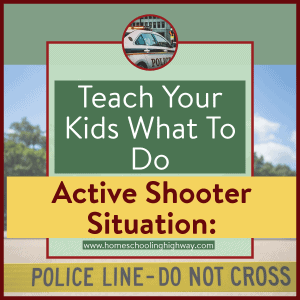
Homeschooling Tip #2: Encouragement
Learning new things can be hard. When the going gets tough… the tough can’t always get going. It takes a lot of encouragement from mom to try again, and again, and again.
Knowing the frustrations that your child feels as they learn something new, makes that moment even more special when they finally get it.
It’s a wonderful time. Keep up the encouragement. They will eventually get it.
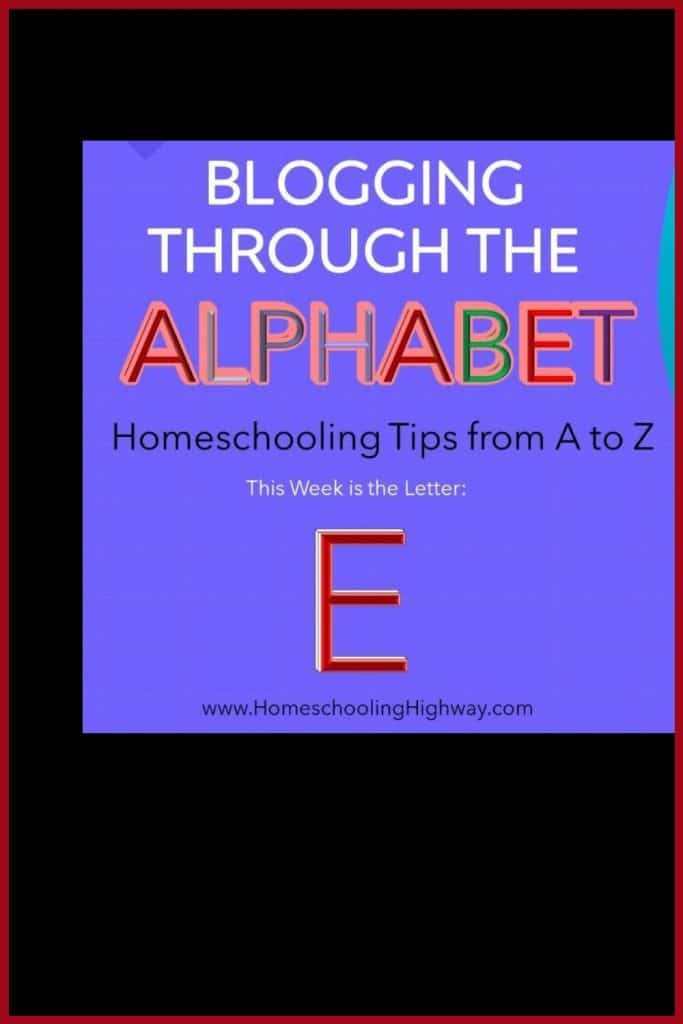
Homeschooling Tip #3: Experimentation
What do you do when a curriculum just isn’t working out for you and your child? You try another one. Thankfully, there is a ton of different publishers and curriculums that you can experiment with.
Don’t forget. You don’t always have to do everything by the book. When you come to a topic that interests your child, you can slow down and concentrate on that subject in more detail.
If it’s a science topic, finding experiments to watch or do, is easy with the internet. Never before has it been easier to figure out different ways to do things, find different ideas, or expand your study of a topic.
Homeschooling Tip #4: Elaborate Supplies? No
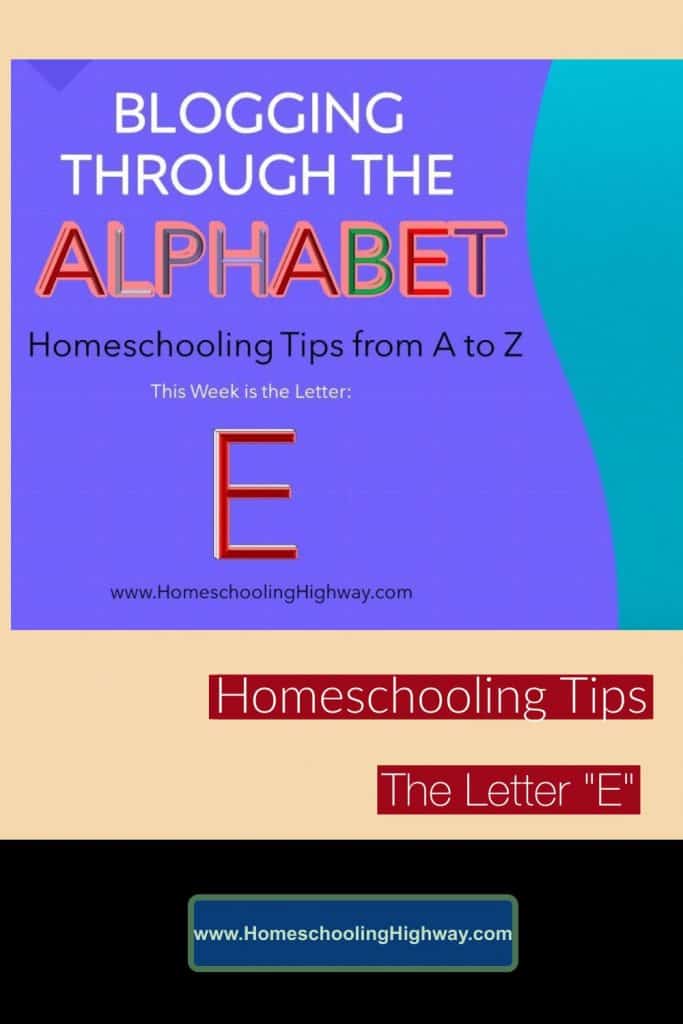
Does homeschooling have to be elaborate? No.
You do not need the most expensive curriculum, an expensive microscope, or even the newest computer.
I mean, back in the old one-room schoolhouses, they shared books, and wrote on little slates with chalk. If they can do it without the fancy stuff, so can we. Your kids will be wonderful adults. Trust me.
Homeschooling Tip #5: Eighth & Eleventh Grade
I’m a big fan of SchoolhouseTeachers.com, so I promote them as one of their affiliates.
SchoolhouseTeachers.com makes it incredibly easy to plan your child’s school year, because they do it for you!
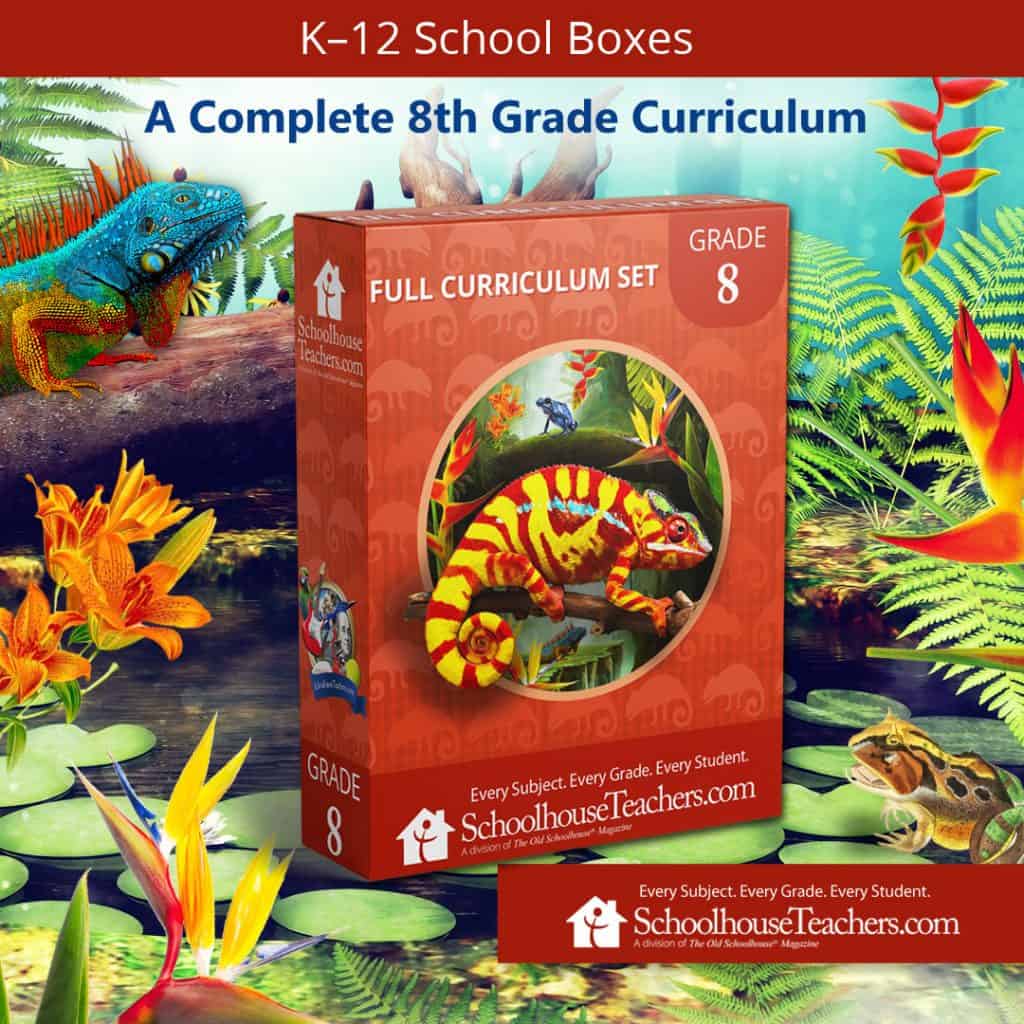
This is their eighth grade curriculum list, they include these classes:
- Math: Algebra I includes linear equations, graphing, inequalities, equations, polynomials, factoring exponential expressions
- English/Language Arts:
- Literature: expand knowledge of prominent and classic authors; analyze, evaluate, and critique literature; identify farce, satire, soliloquies, and asides; compare and contrast tragedy and comedy
- Composition: continue to write for various purposes, use quotations appropriately, identify and include credible sources, create multimedia presentations
- Grammar: progressive tenses of verbs, participles, various moods, phrasal, italics and quotation marks, in-depth study of specific parts of speech
- Spelling: lists derived from scripture, literature, and famous speeches
- Science: Physical Science includes an overview of the study of chemistry, physics, geography, meteorology, oceanography, and astronomy
- History – Traditional: Post-World War II to present, Cold War, Korean War, Civil Rights Movement, Vietnam War, Gulf War, rights of Americans, British Empire, Republic of China, Middle East, European Union
- History – Classical: French and Indian War, American Revolution, Industrial Revolution, immigration, prominent historical figures and inventors of the time period, Cold War, Korean War, Russian history, missionaries’ lives and struggles, British Empire, Apartheid
- Social Studies/Geography: continental features, capitals of Asia and Africa, impact of technology, cultural heritage
- Art: elements of design, creating art by following examples, expressionism, cubism, art deco, pop art, study of famous artists
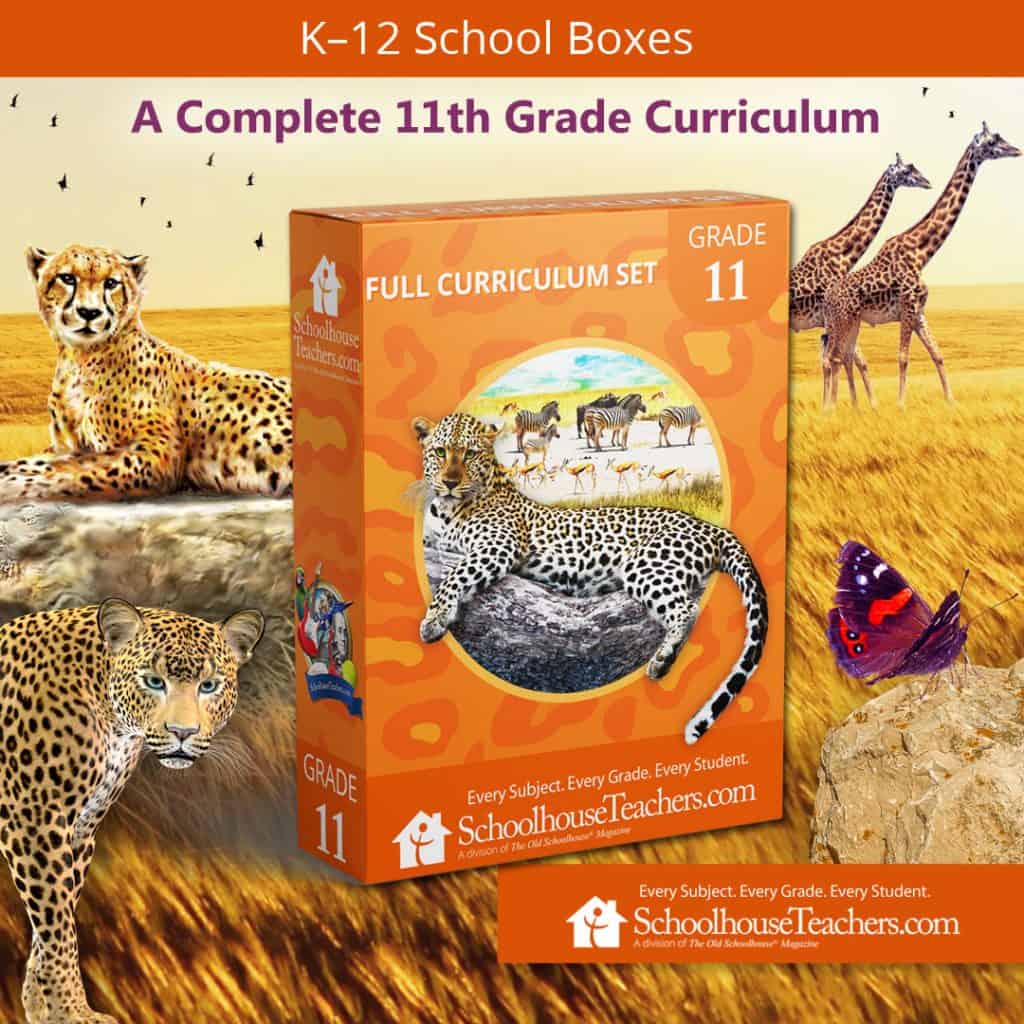
The eleventh grade classes are:
- Math: Trigonometry and Statistics include angles; sine, cosine, and tangent; trinomial factoring; identities; properties of vectors; roots of complex numbers; relations and functions; understanding statistics; probability; graphs and histograms; standard deviation
- Literature: Exploring American Folklore and African American Literature teaches through poetry, short stories, essays, drama, journals, and other written forms
- Writing/Composition: Benjamin Franklin Writing Method progressively teaches students to write by learning and using Benjamin Franklin’s method; writing to a genre; writing original pieces
- Spelling: lists derived from scripture, literature, and famous speeches
- Science: Friendly Chemistry and Advanced Chemistry build a foundation and knowledge base about chemistry concepts
- History – Traditional: United States History: Exploration to the Present Day includes the French and Indian War, Revolutionary War, Civil War, the Industrial Age, World Wars I and II, Cold War, Korean War, Civil Rights
- History – Classical: 250 Years of Exploration, Settlement, and Reformation: World History studies the areas of the Incan Empire, early settlements of the Americas, the Great Awakening, Constantinople, Reformation, England Colonization, key historical figures of the time period
- Geography: Geography of the Bible begins at the Exodus; the kingdoms of Saul, David, Solomon; explores the Gospels; visits the seven churches of Revelation
- Art: elements of design; creating art by following examples and instruction; studying artists and work from various eras
What to do you do if your child has already taken one or more of these classes? You can switch that class for another one!
SchoolhouseTeachers.com has over 450 classes to choose from ranging from K-12. To read my review just click on this title: SchoolhouseTeachers.com Review
Can you think of any other “E” words for a homeschooling tip? If so, please put them in the comment section. I would love to see your ideas.
If you want to read more of this week’s “E” posts, just click on the words below. These wonderful, homeschool mom bloggers are writing about different topics each week, going through the alphabet. You don’t want to miss it.
Blogging Through the Alphabet
If you would like to read any of last weeks “D” posts, I’ve linked them up here for your convenience. They are really good.
D is for Display and Donuts
Delight Directed Education
Delight Directed Teaching
Dickens: Resources for a Charlotte Mason Education
D is for Devil’s Den
Discovering the “D” Rabbits of the World
D is for Derby
Debussy and de Meij: Composer ABC’s
If you would like to read more Homeschooling Tips from A to Z, just click on the alphabet letter below.
Homeschool Tips – A
Homeschool Tips – B
Homeschool Tips – C
Homeschool Tips – D
Homeschool Tips – E
Homeschool Tips – F
Homeschool Tips – G
Homeschool Tips – H
Homeschool Tips – I
Homeschool Tips – J
Homeschool Tips – K
Homeschool Tips – L
Homeschool Tips – M
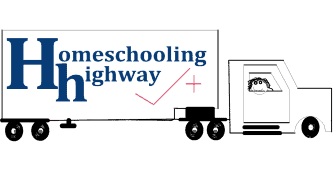
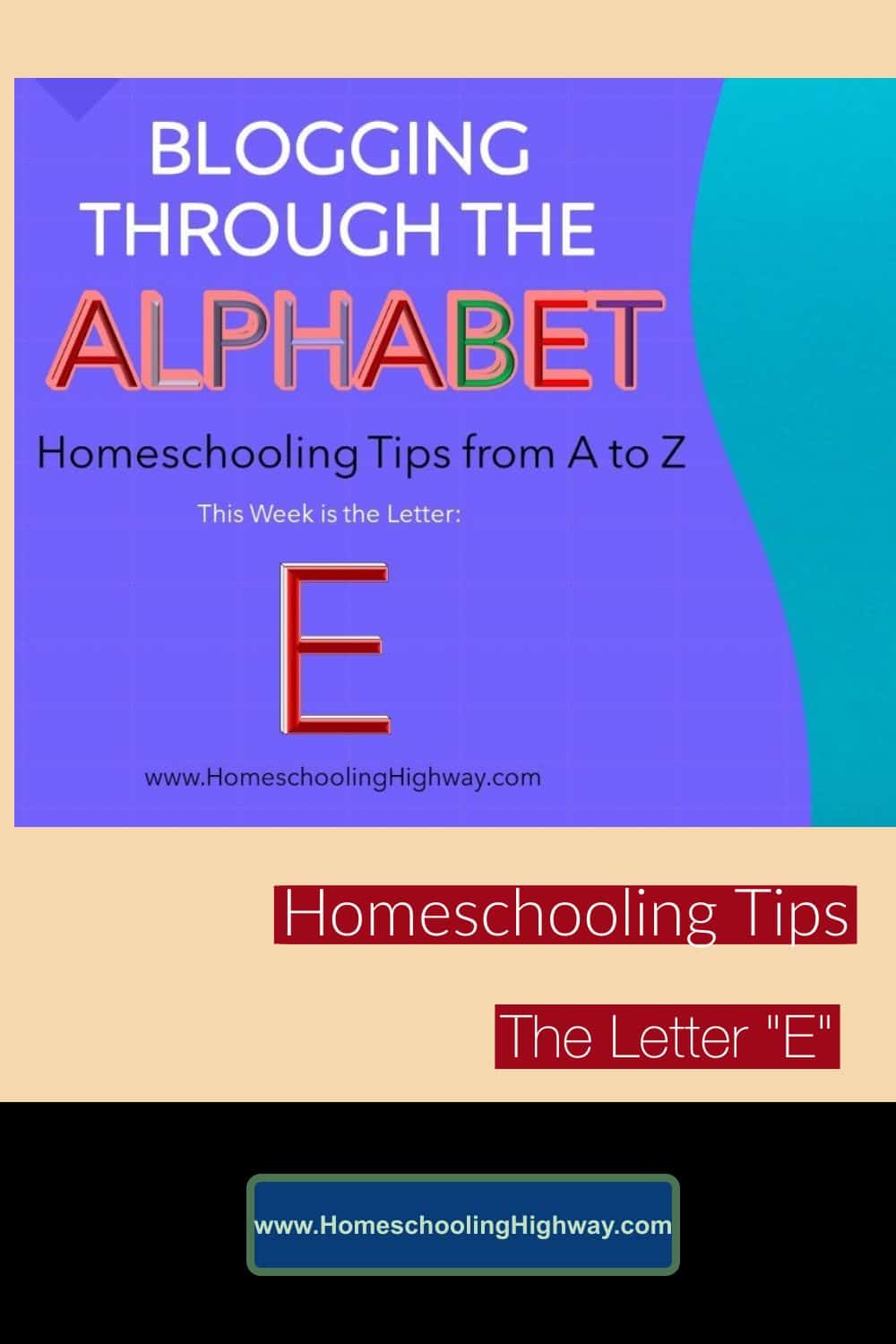
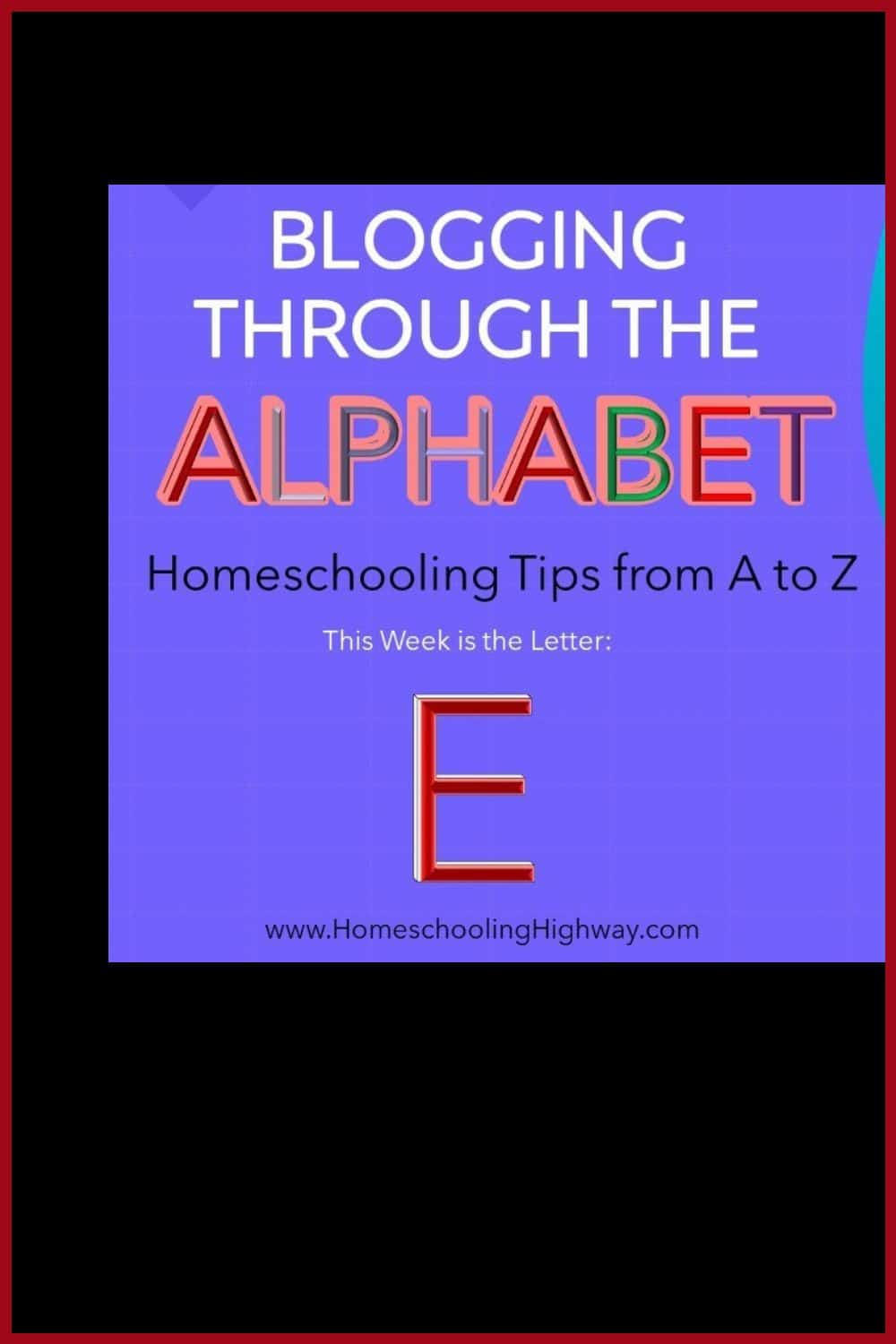
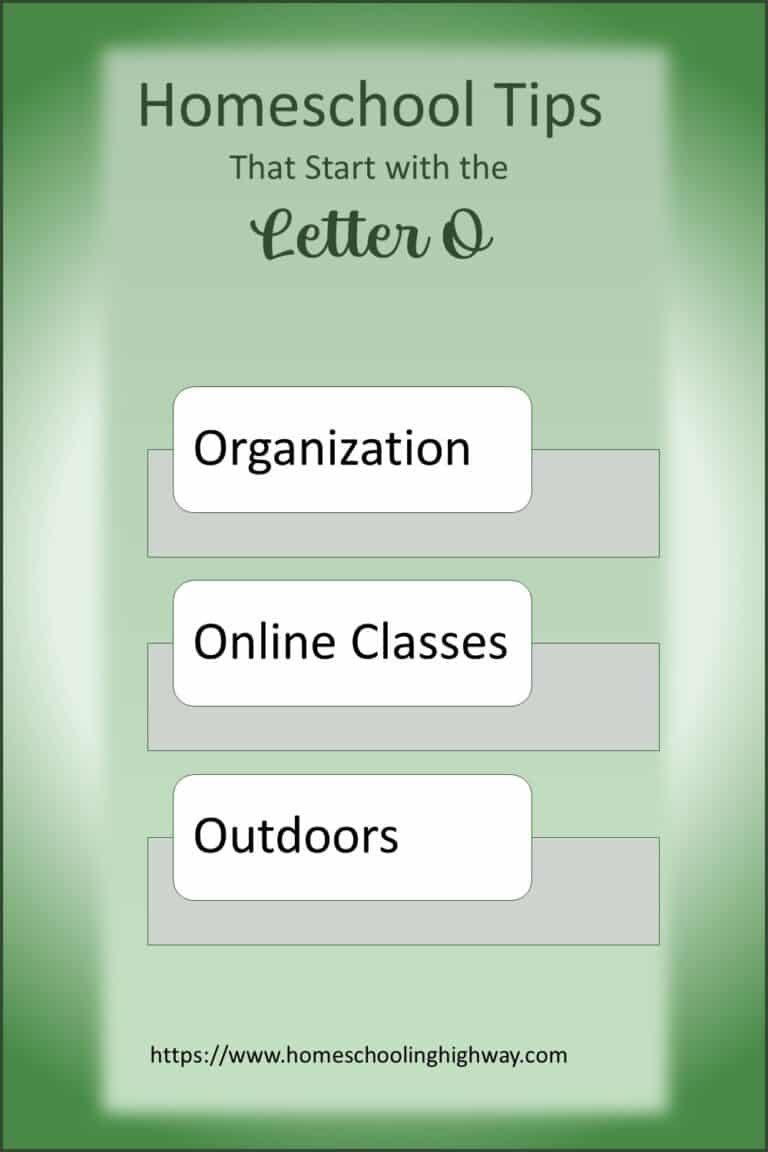
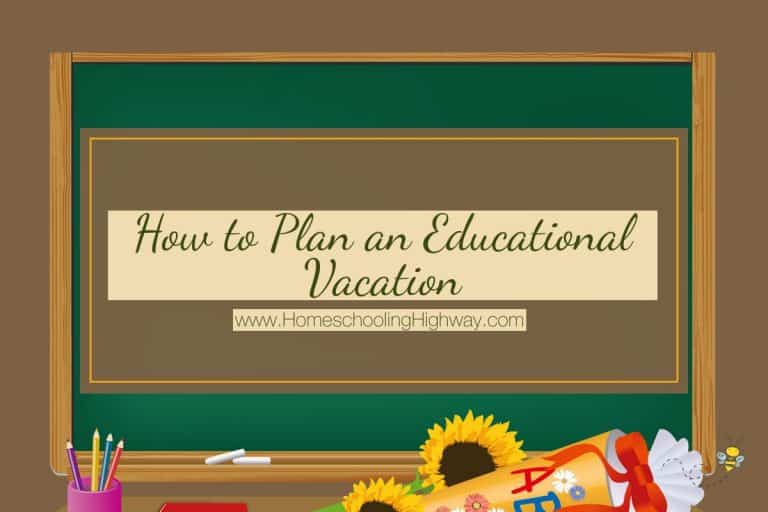
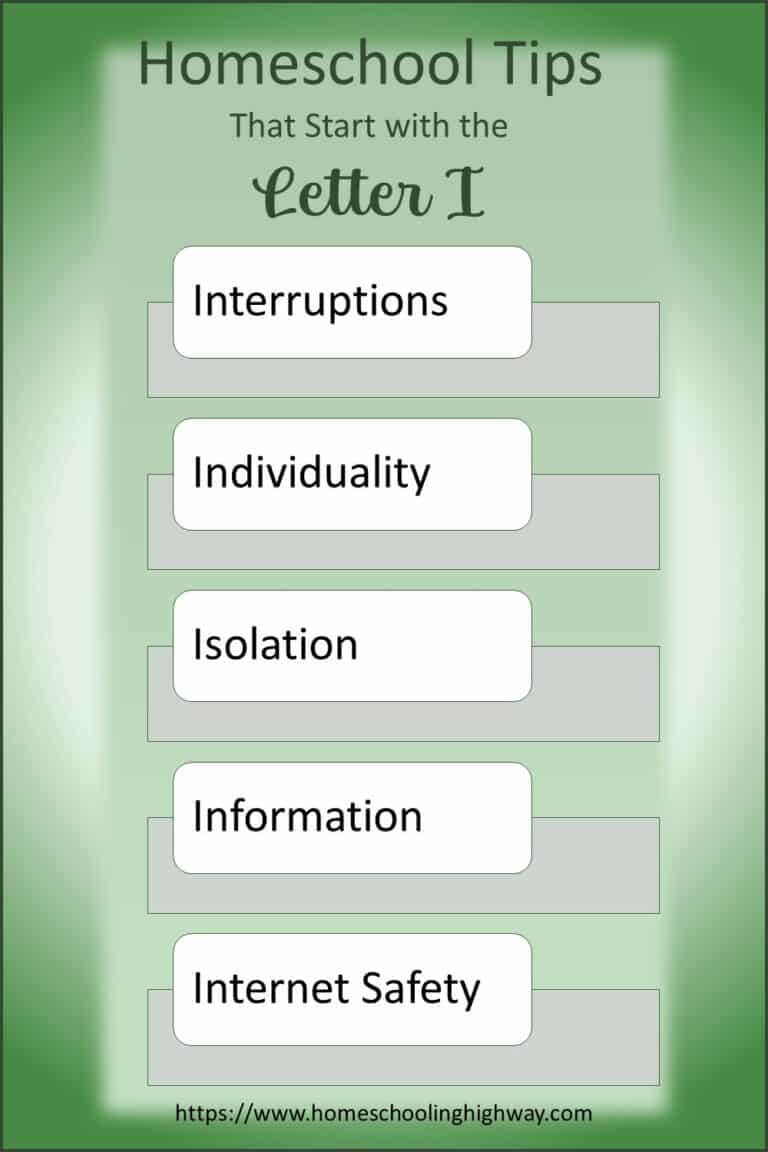
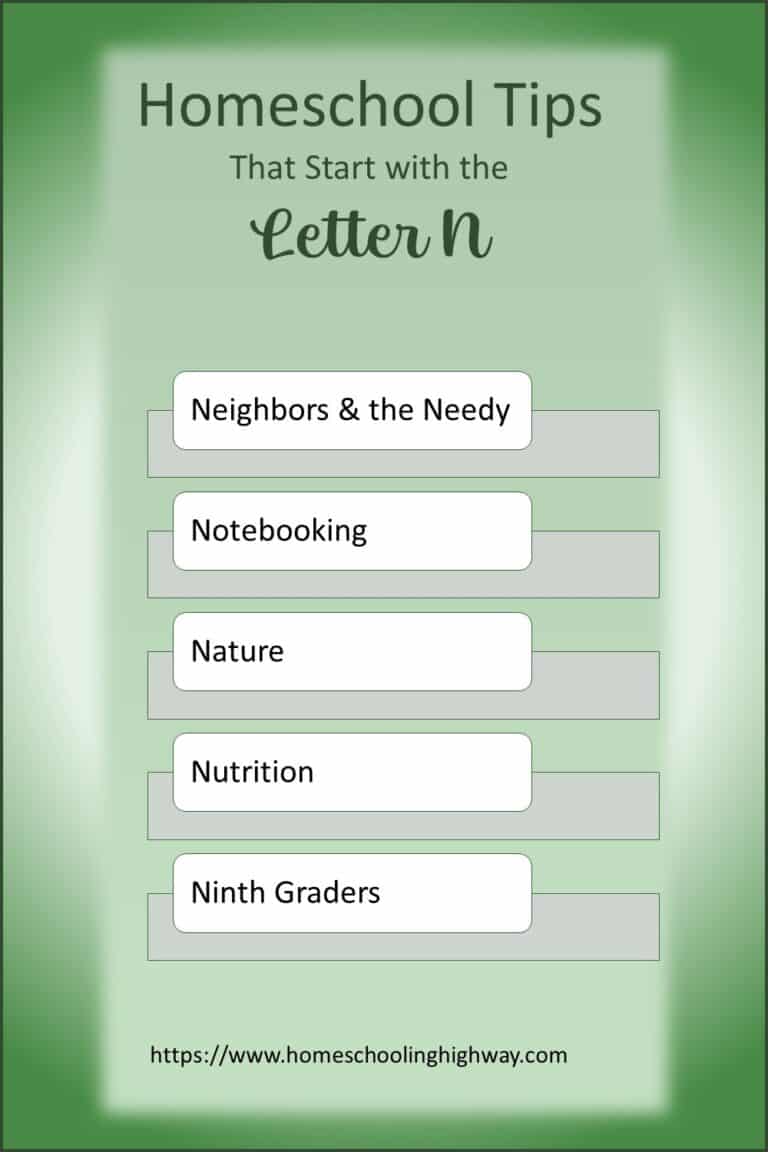
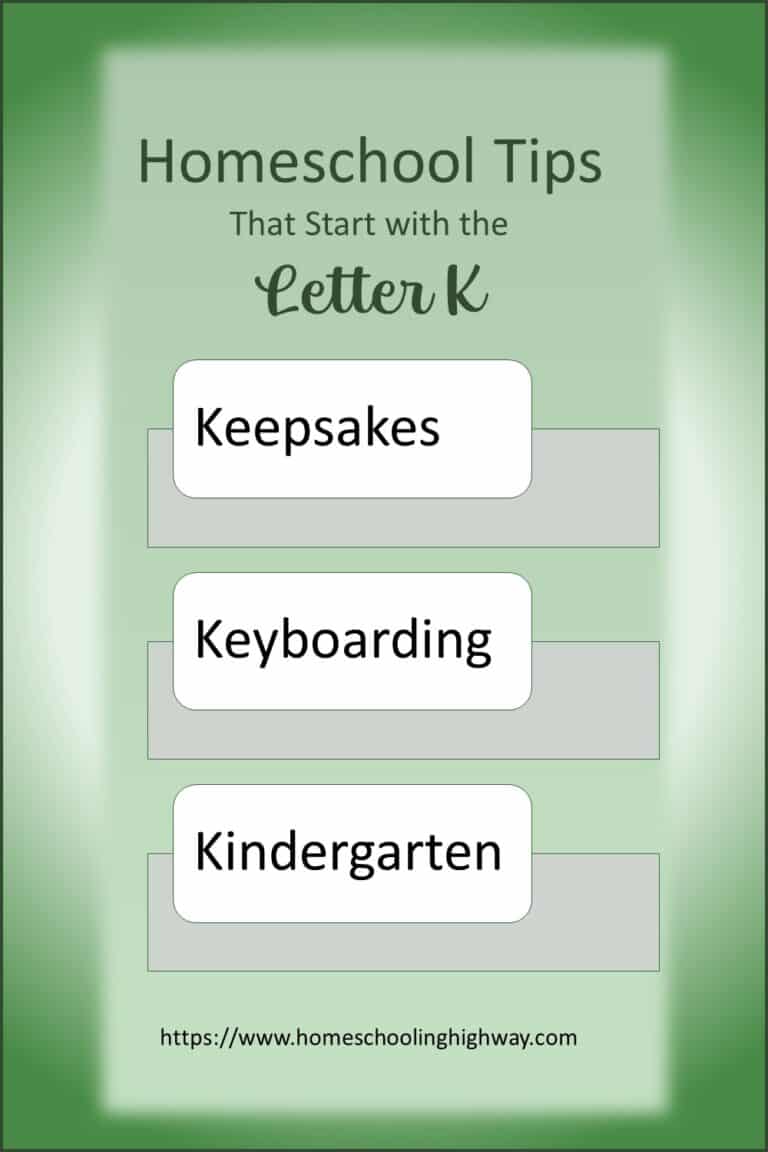
I really need to teach my kids (and myself) CPR and other Emergency techniques, like the Heimlich Maneuver. Especially as I let my 14 year old babysit my 3 year old sometimes! I also agree – no elaborate supplies are necessary. Use what you have!
Thanks for commenting, Megan. I guess it’s better they know how to do it, and just pray they never have to use it.
Oh my I’m so enjoying your series. I love your E words and you are right we often forget to list Emergency contacts or information. The needs of our families is always changing and this is a small thing to do but has HUGE ramifications.
Thank you for the reminder on elaborate supplies. I’ve wasted a lot of money on that over the years you are so right you do not need them.
Thank you for linking up to Blogging through the Alphabet
Thank you, Chareen.
This is such a good reminder! I need to get our emergency stuff up to date, and I’m pretty sure I don’t have any numbers or addresses posted in the kitchen like I used to. These are all great ideas of things to talk about with my kids.
Here’s another E word for homeschooling. Each. Each child is different and will learn in their own way, so keep that in mind with curriculum and other choices. They all have their own unique personalities!
You are so right, Desiree. Each is another great word.
E words…. Eraser, Enlightenment, Ease of use,
but definitely… one does not need elaborate supplies. 🙂
Thank you, Annette. I love these E words. They’re great!
How about empathy? We can so often get to comparing instead of understanding and it can be so detrimental for all homeschoolers.
I am enjoying your tips series and getting good information and reminders.
Thank you, Lori. Empathy is a great “E” word. We definitely need empathy as homeschoolers.